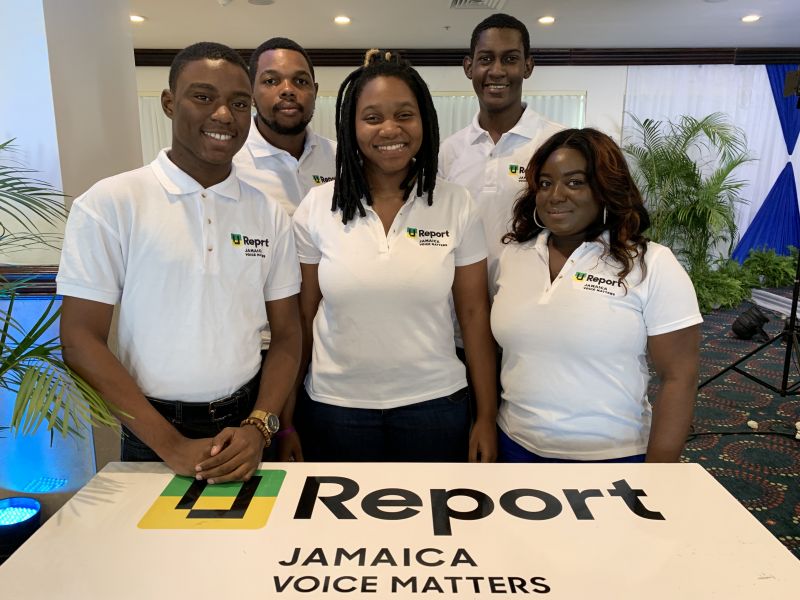Since school doors closed last March due to COVID-19, the majority of Jamaican students are still receiving tuition exclusively online. Social media and messaging services are more relevant than ever as a channel to share knowledge and resources with young people, as well as to receive their feedback.
The United Nations Children’s Fund (UNICEF) U-Report is an innovative message-based tool designed to engage with young people, provide them with information and give them an opportunity to weigh in on issues of national importance. Jamaica became the first Caribbean country to launch U-Report, joining a global movement of more than 5 million U-Reporters. UNAIDS Jamaica recently collaborated with UNICEF to find out what young people know, or don’t, about HIV. The 10-question quiz also provided correct information to the participants.
Almost 2000 young people responded to the survey, with just 214 achieving a perfect score. The quiz pointed to some worrying gaps in knowledge relating to both HIV basics and access to information on HIV prevention. One in 10 respondents mistakenly thought HIV could be transmitted by mosquitoes, for example. Almost one in three were not aware of the local solution for delivering school-based sex education, the Health and Family Life curriculum.

The results of the survey corroborate Jamaica’s most recent Knowledge, Attitude and Behaviour (KAB) survey results and demonstrate that there are still glaring HIV knowledge gaps among young people. The survey revealed that only 33% of young people between the ages of 15 and 24 years correctly identified the ways in which HIV can be transmitted. This was a 6% decline in knowledge levels as compared to the 2012 KAB survey. The 2017 study also found that 40% of respondents with multiple partners did not use a condom during their last sexual encounter.
“The results of the HIV U-Report quiz have reinforced the need for efforts to be made to address the decline in knowledge on information on HIV among young people in Jamaica,” said the UNAIDS Country Director for Jamaica, Manoela Manova. “Particularly in the context of COVID-19, it is critical that we innovate to ensure that this messaging and engagement takes place on digital platforms and with a view to ensuring that no child or young person is left behind.”
The U-Report social messaging tool has proved to be a quick and useful way to gather information that can be used to inform programmes and plans focusing on young people in Jamaica. UNICEF Jamaica has supported innovations to ensure that children and young people have access to education and support during COVID-19, including tele-mental health services, virtual instruction training for teachers and strategies to close the digital divide.
During COVID-19, virtual dialogues and behaviour change communication have been scaled up. A UNICEF-supported initiative aims to address the gaps in HIV and sexual and reproductive health knowledge for young people in Jamaica. The National Family Planning Board’s Adolescent Sexual and Reproductive Health Campaign focuses on teen health, including targeting sexually active teenagers with messages on condom use and dispelling myths about HIV transmission. The campaign disseminates sexual and reproductive health/HIV information through social media and uses animated characters to reach adolescents. The campaign also speaks about the benefits of abstinence and birth control.



